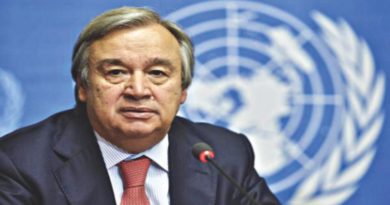Experts gear up for new wave of climate reports under Paris Agreement
Some 124 review experts from 59 countries gathered in Bonn last month to reflect on the current reporting and review systems, and shed light on the new review process under the Enhanced Transparency Framework (ETF) of the Paris Agreement.
Under the Paris Agreement, new universal reporting requirements aim to show how all countries (both developed and developing) are pulling their weight in terms of climate action, a key part of global accountability and building trust in the new climate regime established in 2015.
The deadline for submitting the first national reports on climate change action and support (known as biennial transparency reports) is December 2024, and the group of international experts tasked with reviewing these reports is also preparing for this next step.
The review process provides an independent assessment of progress toward climate commitments and helps countries to improve their reporting over time. It also provides an opportunity for experts from different Parties to work together, learn from each other, and bring this experience back to their home countries.
To this end, leading international review experts (known as “lead reviewers”), drawing on decades of experience reviewing and analyzing greenhouse gas inventories, national communications, biennial reports and biennial update reports, are now increasingly focused on the new review process under the ETF.
In shaping the new review system, lead reviewers reflected on what has worked well under the existing system, from reporting and review tools, to templates and the composition of expert review teams tasked with conducting reviews. In collaboration with the UN Climate Change secretariat, these lead reviewers are now working to ensure that the new system is not only ready, but also effective.
Donald Cooper, Director of the Transparency Division of UN Climate Change, noted that the lead reviewers’ past experiences will serve them well: “Lead reviewers have learned, established best practices, seen what works and what doesn’t, and identified where the gaps are. As a result, they will continue to get better and better and the guidance and insight they share with countries will help them to inform the development of their policies and economies. In the long run, this will help to ensure that all countries continue to progress on climate as fast as possible and that the resulting reports are the best they can possibly be,” he said.
As the ETF expands reporting requirements to all countries under the Paris Agreement, a new challenge emerges: the pressing need to attract and train new review experts, as well as fully mobilize and maintain the list of existing experts. Reflecting on this concern, lead reviewers concluded that a combination of outreach, training and updated approval processes is urgently needed to support the ETF.
To become an expert reviewer under the UNFCCC, experts need to be nominated to the Roster of Experts by their national focal point and complete the relevant training programmes. The training programme for reviewers of the biennial transparency reports will be available online, open and available to all experts to study at their own pace all year round, with the first course (General and cross-cutting aspects for the technical expert review) launched this month. For more information on the upcoming courses and exams, please visit the UNFCCC training programme website.
The meeting ended with lead reviewers agreeing on a set of conclusions, which will be made available on the Lead Reviewers’ Hub.




